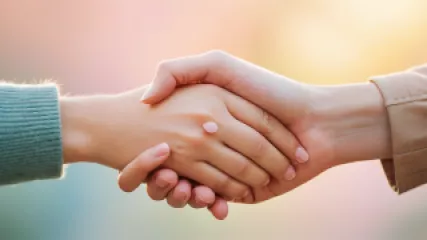Steps to Support Toxic Relationship Survivors
Toxic relationships can have a profound impact on our emotional well-being and overall quality of life. Whether you've personally experienced a toxic relationship or know someone who has, it's important to understand the challenges survivors face and how to provide support. In this tutorial, we'll explore the steps to support toxic relationship survivors and help them navigate their healing journey.
Step 1: Validate Their Experience
One of the most crucial steps in supporting toxic relationship survivors is validating their experience. It's essential to let them know that their feelings are valid and that they are not alone. Avoid blaming or shaming them for their choices and instead offer empathy and understanding. Let them know that you believe and support them.
Step 2: Encourage Self-Care
Survivors of toxic relationships often neglect their own well-being while focusing on their partner's needs. Encourage them to prioritize self-care and engage in activities that bring them joy and relaxation. This could include exercise, mindfulness practices, hobbies, or spending time with loved ones. Remind them that self-care is not selfish but necessary for their healing process.
Step 3: Provide Resources
Support toxic relationship survivors by providing them with helpful resources. This could include recommending books, articles, podcasts, or online communities where they can find information, validation, and support from others who have gone through similar experiences. Offer to assist them in finding a therapist or counselor who specializes in trauma and toxic relationships.
Step 4: Listen without Judgment
Survivors of toxic relationships often carry deep emotional wounds and may need a safe space to share their experiences. Practice active listening without judgment, allowing them to express their emotions and thoughts openly. Avoid offering unsolicited advice unless they specifically ask for it. Sometimes, all they need is someone who can empathetically listen.
Step 5: Help Them Set Boundaries
Setting boundaries is crucial for survivors of toxic relationships to protect their emotional well-being. Assist them in identifying healthy boundaries and guide them in communicating those boundaries assertively. Encourage assertiveness training or therapy if needed. Remind them that it's okay to say no and prioritize their own needs.
Step 6: Offer Professional Help
While support from friends and family is valuable, professional help is often necessary for survivors of toxic relationships to navigate their healing journey effectively. Encourage them to seek therapy or counseling with professionals who specialize in trauma and toxic relationships. Therapy can provide them with the tools and techniques to heal and build healthier relationship patterns.
Step 7: Foster a Safe Environment
Create a safe and supportive environment for toxic relationship survivors. Ensure confidentiality and respect their privacy. Be mindful of triggers and avoid discussing topics that may retraumatize them. Offer ongoing support and check-ins, even after the initial crisis has passed. Let them know that you are there for them whenever they need someone to lean on.
Step 8: Educate Yourself
Take the initiative to educate yourself about toxic relationships and their impact. This will help you better understand what survivors are going through and how to provide appropriate support. Read books, attend workshops, or join online forums dedicated to learning about toxic relationships. The more informed you are, the better equipped you'll be to offer meaningful support.
Step 9: Be Patient
Healing from a toxic relationship takes time and patience. It's important to remember that everyone's healing process is unique, and survivors may have good and bad days. Be patient with them and avoid pressuring them to "get over" their experiences quickly. Offer support without judgment or expectations.
Step 10: Celebrate Progress
As survivors navigate their healing journey, celebrate their progress, no matter how small it may seem. Acknowledge their resilience and growth. Encourage them to recognize and celebrate their own achievements along the way. Your support and recognition can be incredibly empowering and motivating for survivors.
"Support is not something you do for others; it's allowing them to be a part of your life while you walk beside them on their unique journey of healing."
Anonymous
Supporting toxic relationship survivors requires empathy, understanding, and a commitment to their well-being. By following these steps, you can create a safe and supportive environment that fosters healing and empowers survivors to reclaim their lives. Remember, your support can make a significant difference in their journey towards healing and building healthier relationships.






